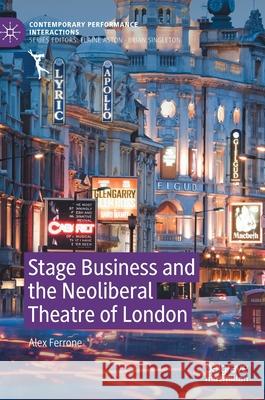Stage Business and the Neoliberal Theatre of London » książka
topmenu
Stage Business and the Neoliberal Theatre of London
ISBN-13: 9783030635978 / Angielski / Twarda / 2021 / 264 str.
Stage Business and the Neoliberal Theatre of London
ISBN-13: 9783030635978 / Angielski / Twarda / 2021 / 264 str.
cena 403,47 zł
(netto: 384,26 VAT: 5%)
Najniższa cena z 30 dni: 385,52 zł
(netto: 384,26 VAT: 5%)
Najniższa cena z 30 dni: 385,52 zł
Termin realizacji zamówienia:
ok. 22 dni roboczych
Bez gwarancji dostawy przed świętami
ok. 22 dni roboczych
Bez gwarancji dostawy przed świętami
Darmowa dostawa!
Kategorie:
Kategorie BISAC:
Wydawca:
Palgrave MacMillan
Seria wydawnicza:
Język:
Angielski
ISBN-13:
9783030635978
Rok wydania:
2021
Wydanie:
2020
Numer serii:
000770014
Ilość stron:
264
Waga:
0.47 kg
Wymiary:
21.01 x 14.81 x 1.6
Oprawa:
Twarda
Wolumenów:
01
Dodatkowe informacje:
Wydanie ilustrowane











